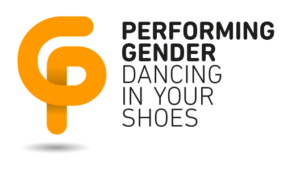ABOUT
Dancing in your shoes!
What about dancing in your shoes and someone else’s? Have you ever danced in someone else’s shoes?
Put oneself into someone’s shoes means to imagine and identify in the situation or circumstances of another person.
Performing Gender has the firm belief that gender, sexuality, LGBTQI identities, can be questioned and explored throughout the dance language and the local engagement of the community.
Performing Gender – Dancing in your shoes was a three-year audience development project aimed at developing a bond between cultural professionals and their local communities in the field of dance and performing arts throughout a discussion on gender in the European dance system.
LOCAL COMMUNITIES
Each partner established or deepened the relationship with members of their local communities through a training artistic process, that led to a production approach. The challenge was to foreground marginalised voices and share new stories on gender, with relevance to new dance audiences.
The communities were the core of a co-design process, together with 16 dancemakers, 9 artistic directors, 8 audience developers, 11 project managers, 3 academic researchers and 1 artistic advisor.
DANCE MAKERS
Gestures, movements, voice and body were means by which the artists guided the community members to explore and reflect on gender issues.
One rooted dance maker per partner stimulated the local community throughout a year. The travelling dance makers contaminated the reflections carried out by the individual communities. After a residency in their own country, they made a co-design residency abroad, in fact a production participated by the community.
RESEARCH
The context of dance and performing arts needs to unhinge the setting of current production and promotion systems, which is mainly vertical and stuck to patriarchal paradigms.
Bologna University followed and study the experiences that were tested during the project, with the aim of sharing a replicable working method that takes into account the new perspective of co-design and the audience development approach.
PARTNERS
11 cultural organizations – dance festivals, LGBT+ association, universities, worldwide organizations, production centres – among 8 European countries – France, Hungary, Italy, Slovenia, Spain, Sweden, The Netherlands, United Kingdom – as project partners work externally with local communities but also internally on innovative organisational processes, that were shared with local bodies and other cultural organisations.

